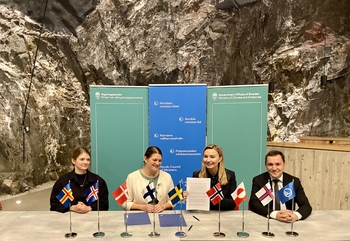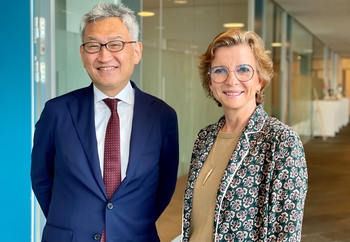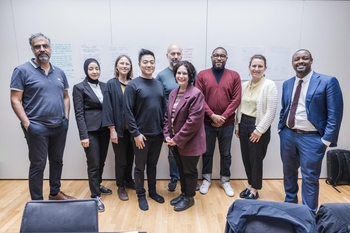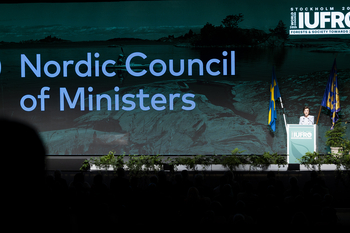70 years of Nordic co-operation: A cornerstone of our shared future
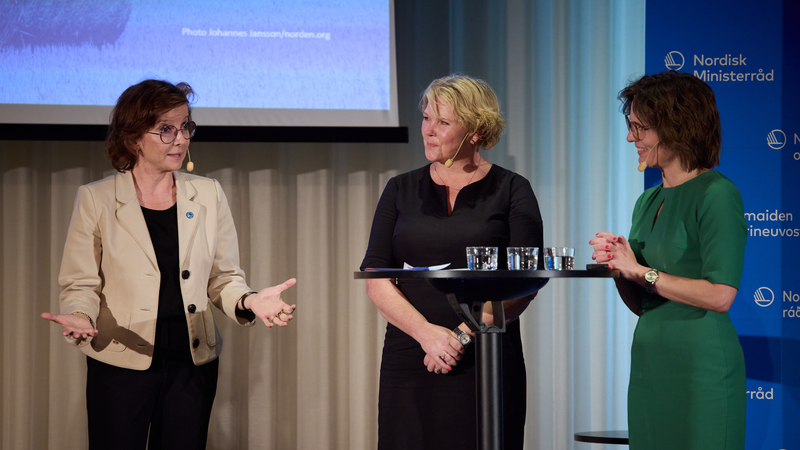
Secretary General of the Nordic Council of Ministers, Karen Ellemann, in a panel discussion on the the future of the integrated Nordic labour market with Ministers for Nordic Co-operation Anne Beathe Tvinnereim from Norway and Jessika Roswall from Sweden.
Sweden’s Minister for Nordic Co-operation Jessika Roswall, and Secretary General of the Nordic Council of Ministers Karen Ellemann, opened the conference with a tribute to the common labour market agreement and its continued relevance. They stressed the importance of freedom of movement in the Nordic Region as a cornerstone of our common welfare model.
From a historical perspective, the ability to move between the Nordic countries has been hugely important for welfare.
“From a historical perspective, the ability to move between the Nordic countries has been hugely important for welfare. Consequently, it cannot be denied that the common Nordic labour market constitutes a cornerstone of Nordic co-operation to this day,” said Ellemann.
Current challenges, such as an ageing population and the need for a green transition, require continued close co-operation. The labour market is playing a pivotal role in delivering the Nordic Vision 2030 of a green, competitive, and socially sustainable Nordic Region. It’s therefore important that the Nordic countries reflect together on what can be simplified for those living in the region. This work is critical in ensuring that the Nordic labour market not only survives, but also thrives in the face of future challenges.
Continued need for development
To mark the 70th anniversary, the Nordic research institute Nordregio has published a new report that looks both back in time and to the future.
The conference in Malmö also looked at specific measures for improving and strengthening Nordic co-operation. A recent example of a measure to ease cross-border co-operation is the new tax agreement between Denmark and Sweden, which was signed not long ago. Ellemann expressed her gratitude for this agreement.
“This agreement not only represents an economic benefit for both countries, but also benefits employers and employees alike,” Ellemann pointed out.
Throughout the conference, there was a clear consensus that future success depends on joint efforts. It was emphasised that it is crucial to continue developing and adapting the Nordic model in order to address new requirements and challenges. Nordic co-operation must not only be about preserving the successes of the past, but also about creating a sustainable and inclusive future.
Joint efforts
One of the objectives of Nordic co-operation on labour is to ensure that the work environment and working conditions are more or less the same in all the Nordic countries. Another objective is to make the Nordic labour market as mobile as possible, which will make it easier for employees to adapt to a workplace in another Nordic country. Our young people must be able to take advantage of the opportunities that an integrated labour market can provide.
This 70th anniversary is not only a celebration of the past, but also an unwavering commitment to co-operation and innovation going forwards.
“This 70th anniversary is not only a celebration of the past, but also an unwavering commitment to co-operation and innovation going forwards. The Nordic Region’s aspiration to be the most integrated and sustainable region in the world by 2030 requires joint efforts and a willingness to face new challenges together. The conference in Malmö has demonstrated that such a willingness clearly exists throughout the Nordic Region,” concludes Ellemann.
